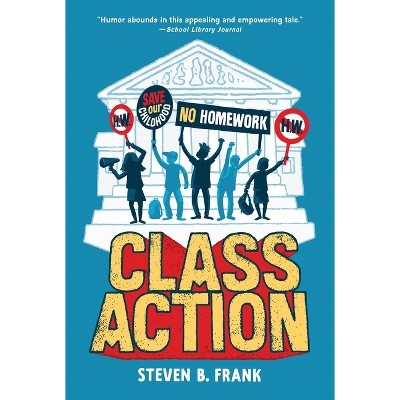Sponsored

The Overseer Class - by Steven W Thrasher (Hardcover)
Pre-order
Sponsored
About this item
Highlights
- The author of the critically acclaimed The Viral Underclass (one of Kirkus Reviews best books of 2022) is back with The Overseer Class, which explores what happens when members of historically minoritized groups are selected for high-visibility positions of power within existing institutions--but under the conditions of a kind of Faustian bargain.Our society places so much weight and attention on those who become the first or only of their identifying group that we miss one of the inherent issues in that model.
- Author(s): Steven W Thrasher
- 240 Pages
- Social Science, Minority Studies
Description
Book Synopsis
The author of the critically acclaimed The Viral Underclass (one of Kirkus Reviews best books of 2022) is back with The Overseer Class, which explores what happens when members of historically minoritized groups are selected for high-visibility positions of power within existing institutions--but under the conditions of a kind of Faustian bargain.
Our society places so much weight and attention on those who become the first or only of their identifying group that we miss one of the inherent issues in that model. This book is about the kinds of compromises made by a small but influential group of people from minoritized groups in the United States as they have entered segregated institutions in highly visible positions. People in the overseer class wield enormous institutional power, even necropolitical power over who lives and who dies; it's just that their power is predicated upon repressing other people who look (or speak/have sex/come from places) like them.
The most obvious contemporary overseer is the Black police officer. The Overseer Class begins with this quote from James Baldwin from 1967:
"The poor, of whatever color, do not trust the law and certainly have no reason to, and God knows we didn't. 'If you must call a cop, ' we said in those days, 'for God's sake, make sure it's a white one.' We did not feel that the cops were protecting us, for we knew too much about the reasons for the kinds of crimes committed in the ghetto; but we feared black cops even more than white cops, because the black cop had to work so much harder--on your head--to prove to himself and his colleagues that he was not like all the other n******."
But this dynamic does not only exist within law enforcement, it exists in many different spheres and The Overseer Class explores what it looks like in mass media, universities, corporate America, the military, and government. A powerful current and local example of this quandary can be seen right here in the ongoing saga of New York's Mayor Adams. At the end of the day, The Overseer Class aims not only to educate us and start this discussion but to provide a framework for challenging that dynamic. It is a weighty topic but one that Dr. Thrasher is well-equipped to handle.












